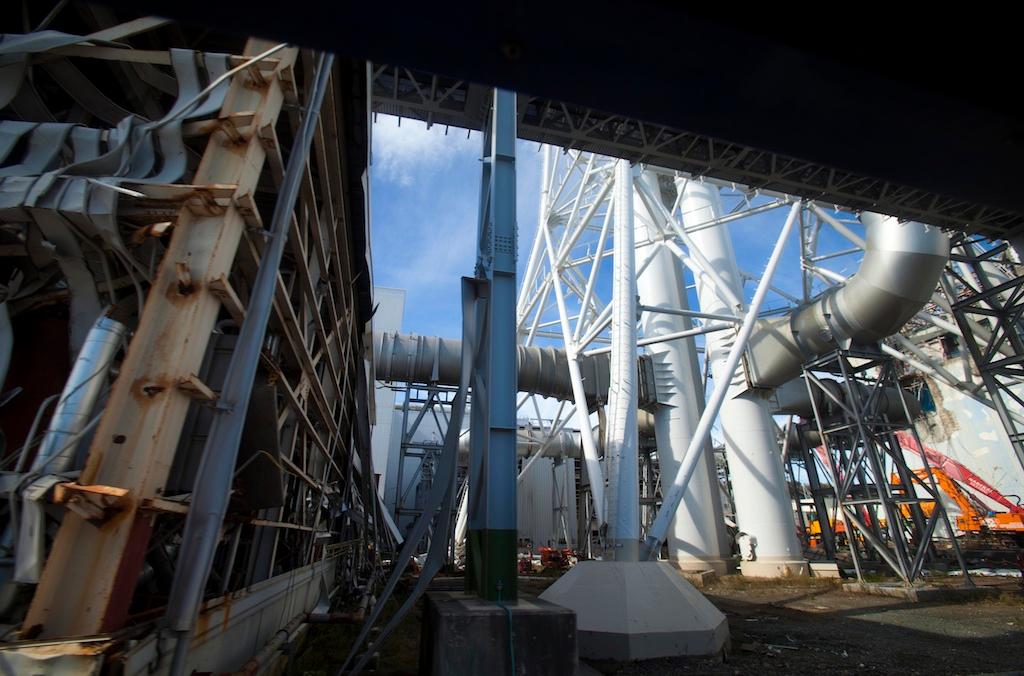Radioactive soil in Japan unsafe for farming, say scientists
The crippled Fukushima Daiichi nuclear power station is seen through a bus window in Okuma on November 12, 2011. Japan took a group of journalists inside the crippled Fukushima Daiichi nuclear plant for the first time, stepping up its efforts to prove to the world it is on top of the disaster.
Scientists have warned that high levels of soil radiation in parts of Japan’s north east exceed those safe for farming.
The findings, reported in the Proceedings of National Academy of Sciences journal, are reportedly the first comprehensive estimate of contamination across Japan following the March earthquake and tsunami.
More on GlobalPost: Journalists tour Fukushima plant for first time
The research team was led by Teppei Yasunari, of the Universities Space Research Association in Maryland.
It found that elevated levels of cesium found in soil samples across eastern Fukushima were likely to severely impair food production, Agence France Presse reported.
The scientists said the Fukushima prefecture, as a whole, “is highly contaminated" – especially to the north-west of the Fukushima Daiichi nuclear plant.
More on GlobalPost: Japanese lawmaker drinks Fukushima water
Farming in neighboring areas may also suffer, although radiation levels there were within legal limits.
When Fukushima nuclear plant suffered a meltdown, radioactive isotopes were blown over Japan and its coastal waters, the BBC reported, adding that an earlier study found that radiation levels in farm produce were within safety limits.
The most recent study looked at cesium-137, which has a half life of 30 years and found that "food production in eastern Fukushima prefecture is likely severely impaired by the cesium-137 loads of more than 2,500 becquerels per kilogram".
Every day, reporters and producers at The World are hard at work bringing you human-centered news from across the globe. But we can’t do it without you. We need your support to ensure we can continue this work for another year.
Make a gift today, and you’ll help us unlock a matching gift of $67,000!
